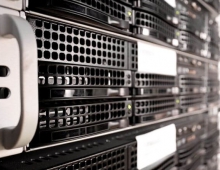
Five Innovations That Will Change Our Lives within Five Years
Today IBM formally unveiled the sixth annual "IBM 5 in 5" - a list of innovations that have the potential to change the way people work, live and interact during the next five years.
The next IBM 5 in 5 is based on market and societal trends as well as emerging technologies from IBM?s research labs around the world that can make these transformations possible.
People power
IBM believes that anything that moves or produces heat has the potential to create energy that can be captured: Walking. Jogging. Bicycling. The heat from a computer. Even the water flowing through pipes.
IBM expects advances in renewable energy technology to allow individuals to collect this kinetic energy, which now goes to waste, and use it to help power homes, offices and cities.
IBM scientists in Ireland are looking at ways to understand and minimize the environmental impact of converting ocean wave energy into electricity.
No More passwords
People's biological makeups are the key to their individual identity, and soon, it will become the key to safeguarding it.
IBM sees a world where perople will no longer need to create, track or remember multiple passwords for various log-ins. People will be able to walk up to an ATM machine to securely withdraw money by simply speaking their names or looking into a tiny sensor that can recognize the unique patterns in the retina of their eye. Or by doing the same, they can check their account balance on their mobile phone or tablet.
Each person has a unique biological identity and behind all that is data. Biometric data - facial definitions, retinal scans and voice files - will be composited through software to build people's DNA unique online password, according to IBM.
Referred to as multi-factor biometrics, smarter systems will be able to use this information in real-time to make sure whenever someone is attempting to access a user's information, it matches his/her unique biometric profile and the attempt is authorized. To be trusted, such systems should enable users to opt in or out of whatever information their choose to provide.
Mind reading
IBM scientists are among those researching how to link users' brain to their devices, such as a computer or a smartphone. People will just need to think about calling someone, and it will happen, according to the company.
Scientists in the field of bioinformatics have designed headsets with advanced sensors to read electrical brain activity that can recognize facial expressions, excitement and concentration levels, and thoughts of a person without them physically taking any actions.
Within 5 years, we will begin to see early applications of this technology in the gaming and entertainment industry, IBM claims. Furthermore, doctors could use the technology to test brain patterns, possibly even assist in rehabilitation from strokes and to help in understanding brain disorders, such as autism.
The digital divide will cease to exist
In our global society, growth and wealth of economies are increasingly decided by the level of access to information. And in five years, the gap between information haves and have-nots will narrow considerably due to advances in mobile technology.
There are 7 billion people inhabiting the world today. In five years there will be 5.6 billion mobile devices sold ? which means 80% of the current global population would each have a mobile device.
As it becomes cheaper to own a mobile phone, people without a lot of spending power will be able to do much more than they can today.
For example, in India, using speech technology and mobile devices, IBM enabled rural villagers who were illiterate to pass along information through recorded messages on their phones. With access to information that was not there before, villagers could check weather reports for help them decide when to fertilize crops, know when doctors were coming into town, and find the best prices for their crops or merchandise.
Growing communities will be able to use mobile technology to provide access to essential information and better serve people with new solutions and business models such as mobile commerce and remote healthcare.
Junk mail will become priority mail
In five years, unsolicited advertisements may feel so personalized and relevant it may seem spam is dead, according to IBM. At the same time, spam filters will be so precise users will never be bothered by unwanted sales pitches again.
"Imagine if tickets to your favorite band are put on hold for you the moment they became available, and for the one night of the week that is free on your calendar. Through alerts direct to you, you'll be able to purchase tickets instantly from your mobile device," IBM said.
The company is developing technology that uses real-time analytics to make sense and integrate data from across all the facets of users' lives such as their social networks and online preferences to present and recommend information "that is only useful to them."
People power
IBM believes that anything that moves or produces heat has the potential to create energy that can be captured: Walking. Jogging. Bicycling. The heat from a computer. Even the water flowing through pipes.
IBM expects advances in renewable energy technology to allow individuals to collect this kinetic energy, which now goes to waste, and use it to help power homes, offices and cities.
IBM scientists in Ireland are looking at ways to understand and minimize the environmental impact of converting ocean wave energy into electricity.
No More passwords
People's biological makeups are the key to their individual identity, and soon, it will become the key to safeguarding it.
IBM sees a world where perople will no longer need to create, track or remember multiple passwords for various log-ins. People will be able to walk up to an ATM machine to securely withdraw money by simply speaking their names or looking into a tiny sensor that can recognize the unique patterns in the retina of their eye. Or by doing the same, they can check their account balance on their mobile phone or tablet.
Each person has a unique biological identity and behind all that is data. Biometric data - facial definitions, retinal scans and voice files - will be composited through software to build people's DNA unique online password, according to IBM.
Referred to as multi-factor biometrics, smarter systems will be able to use this information in real-time to make sure whenever someone is attempting to access a user's information, it matches his/her unique biometric profile and the attempt is authorized. To be trusted, such systems should enable users to opt in or out of whatever information their choose to provide.
Mind reading
IBM scientists are among those researching how to link users' brain to their devices, such as a computer or a smartphone. People will just need to think about calling someone, and it will happen, according to the company.
Scientists in the field of bioinformatics have designed headsets with advanced sensors to read electrical brain activity that can recognize facial expressions, excitement and concentration levels, and thoughts of a person without them physically taking any actions.
Within 5 years, we will begin to see early applications of this technology in the gaming and entertainment industry, IBM claims. Furthermore, doctors could use the technology to test brain patterns, possibly even assist in rehabilitation from strokes and to help in understanding brain disorders, such as autism.
The digital divide will cease to exist
In our global society, growth and wealth of economies are increasingly decided by the level of access to information. And in five years, the gap between information haves and have-nots will narrow considerably due to advances in mobile technology.
There are 7 billion people inhabiting the world today. In five years there will be 5.6 billion mobile devices sold ? which means 80% of the current global population would each have a mobile device.
As it becomes cheaper to own a mobile phone, people without a lot of spending power will be able to do much more than they can today.
For example, in India, using speech technology and mobile devices, IBM enabled rural villagers who were illiterate to pass along information through recorded messages on their phones. With access to information that was not there before, villagers could check weather reports for help them decide when to fertilize crops, know when doctors were coming into town, and find the best prices for their crops or merchandise.
Growing communities will be able to use mobile technology to provide access to essential information and better serve people with new solutions and business models such as mobile commerce and remote healthcare.
Junk mail will become priority mail
In five years, unsolicited advertisements may feel so personalized and relevant it may seem spam is dead, according to IBM. At the same time, spam filters will be so precise users will never be bothered by unwanted sales pitches again.
"Imagine if tickets to your favorite band are put on hold for you the moment they became available, and for the one night of the week that is free on your calendar. Through alerts direct to you, you'll be able to purchase tickets instantly from your mobile device," IBM said.
The company is developing technology that uses real-time analytics to make sense and integrate data from across all the facets of users' lives such as their social networks and online preferences to present and recommend information "that is only useful to them."





















